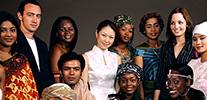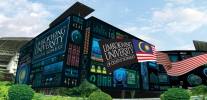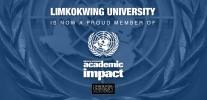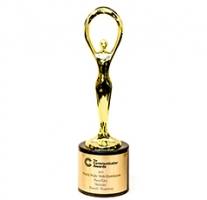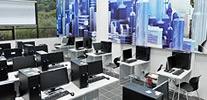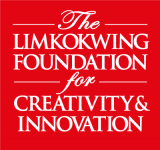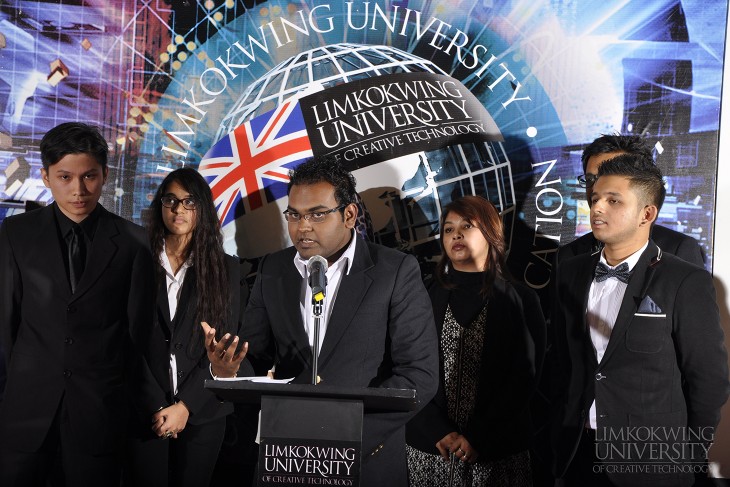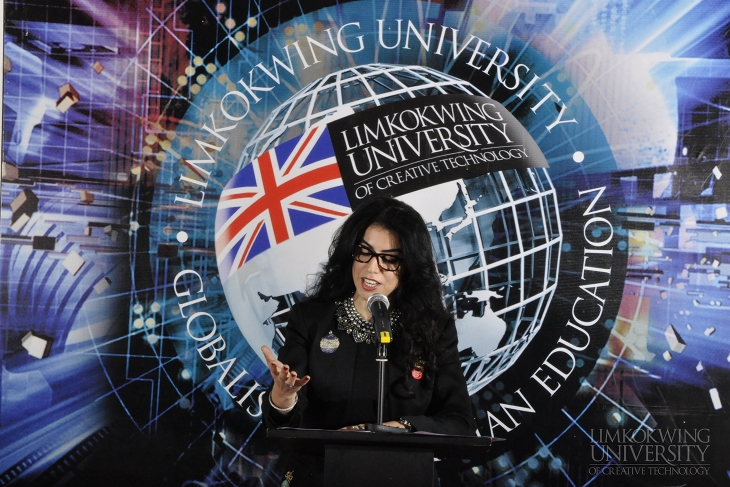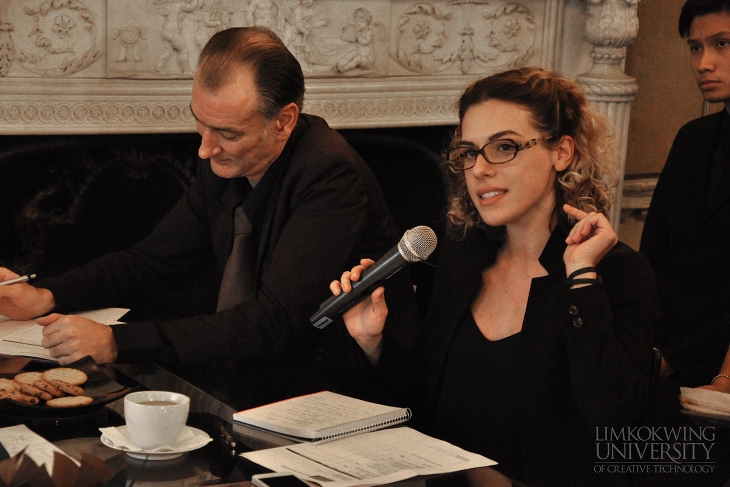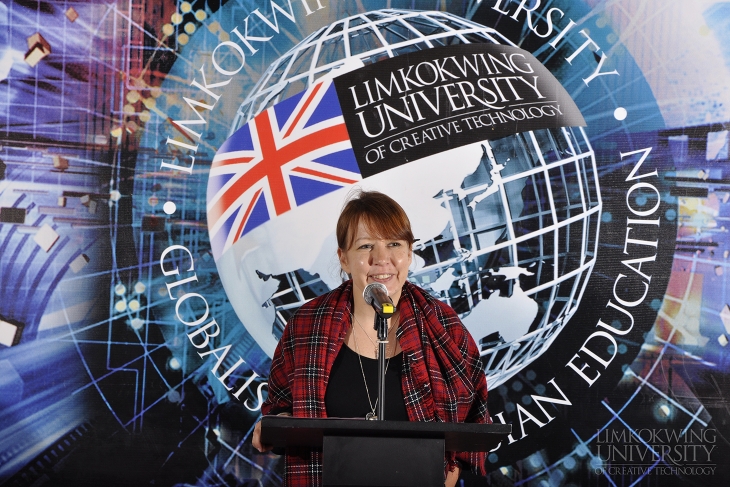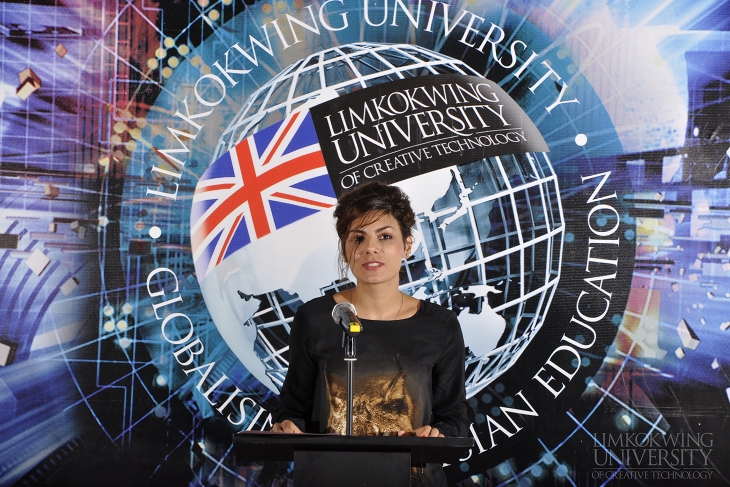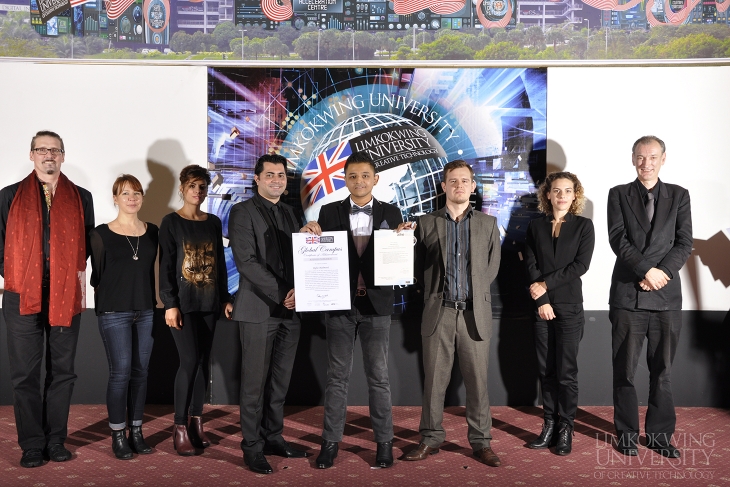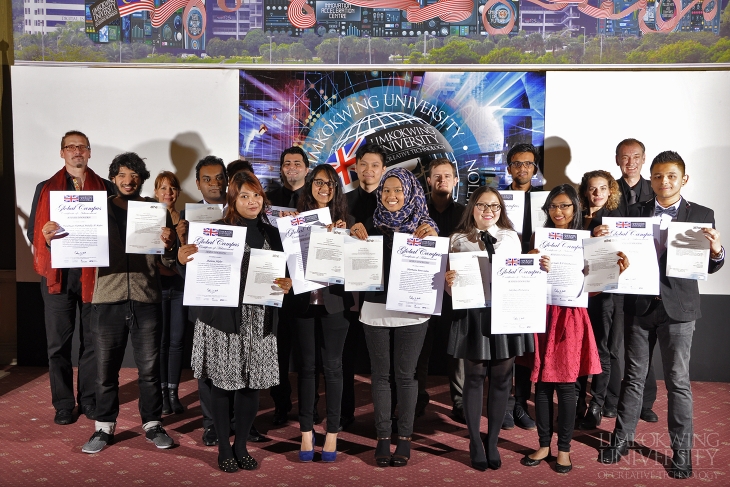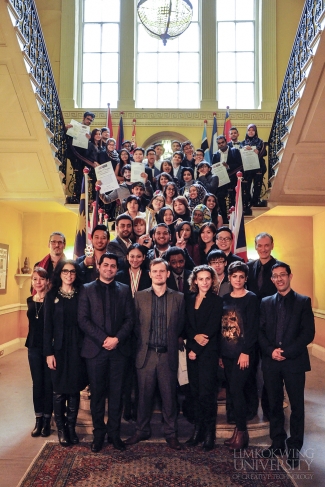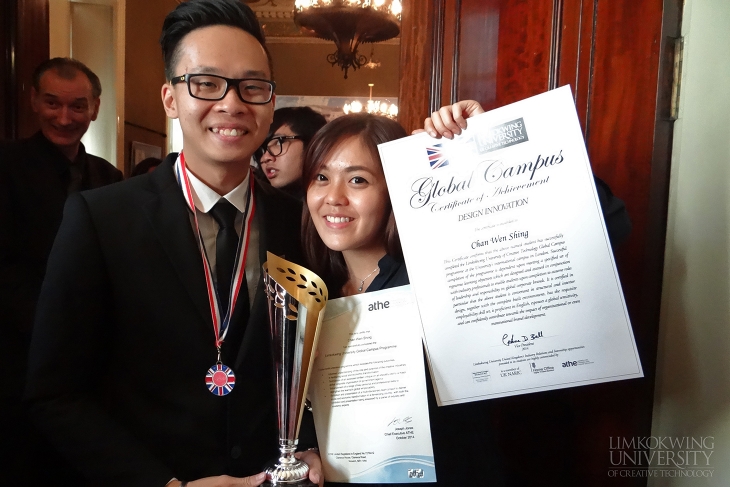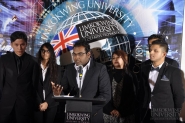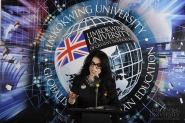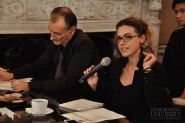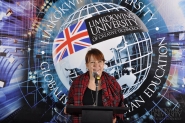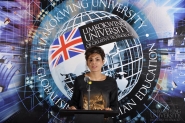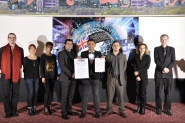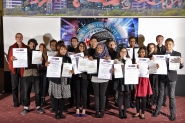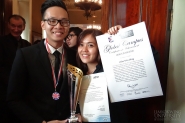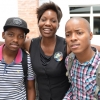Students present their RSA Student Design Awards projects to conclude Global Campus experience in London
28 October 2014
Limkokwing students presented the projects they created for the RSA Students Design Awards to mark the end of their Global Campus experience on 7 October in London.
Divided into four teams, the students were finally given the opportunity to present the impressive projects they had been working on for judgement by their supervisors and external assessors. This was the result of the previous four weeks of intensive study and industry visits by the students whilst in London.
The integrated project for this group was another ‘live’ competition, the RSA Student Design Awards, run by the RSA (Royal Society for the encouragement of Arts, Manufactures and Commerce), in association with the Royal Bank of Scotland. RSA is the UK-based think tank and registered charity that works to improve society in a range of ways.
The brief for the competition asked students to think about when and where people are most inspired and the conditions that best encourage and nurture creative thinking and innovation. Students were requested to develop, design and communicate a vision that will inspire and delight, whilst also paying attention to the commercial realities of implementation.
The judging panel comprised of each team’s supervisors as well as external judges that include artist/designer Kasia Molga, an internationally renowned and awarded media artist, interaction designer and creative technologist with an extensive expertise in environmental and ethical issues, creative technologies, interaction and hybrid design, and interdisciplinary practices. The other external judges were Mobina Nouri and Joshua Jones. Mobina Nouri taught Interior Design and Art, and is currently studying towards a PhD in the Centre of Creativity in Professional Practice at City University of London. Nouri’s focus is on spaces that make people creative by finding the relationship between environment and creativity through people’s emotional states. Joshua Jones is the CEO of ATHE (Awards for Training and Higher Education), an awarding organisation regulated by Ofqual (the UK Government’s Office of Qualifications and Examinations), and provide QCF (Qualifications and Credit Framework) awards to over 200 centres globally. The judging panel was chaired by London Campus Academic Co-ordinator Mehrdad Borna.
Each team was allotted ten minutes for their presentations, followed by a five minute question and answer session from the judging panel.
The first team to present were Schaffhoffen, supervised by Illugi Eysteinsson, and whose leader was Dhini Duta Lestari studying BA in Professional Design. This group had designed a library-based phone application called ‘Book Talk’, which would enable readers around the world to enter discussion forums focussing on the latest (and older) novels, and non-fiction books, with the option to discuss single chapters within the publications.
The second group, Synergy, led by Adrian Siok Chun Kiat studying BA in Creative Multimedia, noted that the idea of a creative space was a completely subjective one; not everyone will find the same environment inspiring. Synergy addressed this problem in their design for an ‘Escape Pod’. A lotus-shaped structure which could be constructed almost anywhere, and within which the user is encouraged to “build [their] own world”. The interior of the pod features a 360-degree intelligent glass screen, able to project moving scenes (and sounds) from around the world (from beaches and city streets to cafes), some archived and some streamed in real time. The design would later include smells. The user simply chooses the environment in which he/she feels most inspired. Synergy’s supervisor was Chris Hughes.
The third team, Glos, led by Syamsinar Kusumawardani studying BA in Professional Design, had designed the ‘RBS Bot’, a rechargeable robotic dustbin for schools and parks, which moves in set patterns around its environment. The Bot is particularly targeted at children, encouraging them to take an interest in waste disposal and recycling. One way in which it does this is through an interactive screen, which children can use to create pictures of animals/objects made up of the differently shaped pieces of rubbish deposited within. Glos was mentored by Sean Wilder.
The final group to present was Next Level, led by Rafee Mahmood studying International Business. This team had designed ‘Library+’, a spectacular high-tech super-library, to encourage people to read paper books as well as electronic texts. A number of innovations were included in their design including library ‘smart cards’, a phone application, lockers for library users, and a large interactive wall display touch-screen. The group had also researched the psychological properties of colours to be used in both interior design and lighting. Next Level had also produced an incredibly detailed and impressive 3D walkthrough of Library+, indicating the various facilities within. The supervisor for this group was Rob Bye of Design Students UK.
Following the four presentations, the judges retired to decide upon the winning teams and after much deliberation and discussion, the winners were decided upon. An overall winner was also chosen, although the results were extremely close. The judges were impressed by the commitment and enthusiasm of all the students, and the quantity and quality of work produced by them within a very limited time-span.
Trophies were awarded to the teams in the following categories: most ecological design (Glos) most dynamic design (Next Level), most futuristic design (Synergy), and most practical design (Schaffhoffen). Finally, the overall winner was announced to be Glos, for their RBS Bot project.
Following the prize-giving, all students were awarded Global Campus Certificates by their respective supervisors, and ATHE Certificates presented by Joshua Jones. ATHE has approved Limkokwing Global Campus participants to receive the ATHE Certificate, which as noted above is a UK-recognised qualification.

